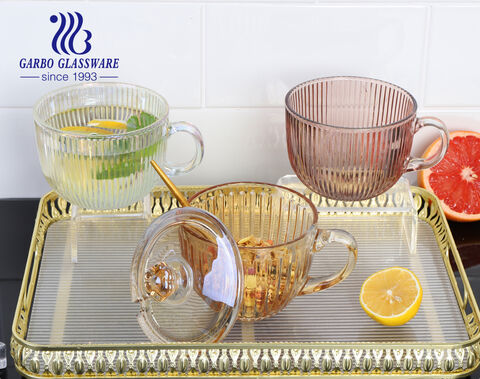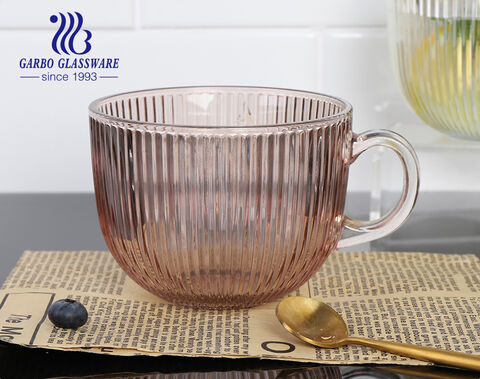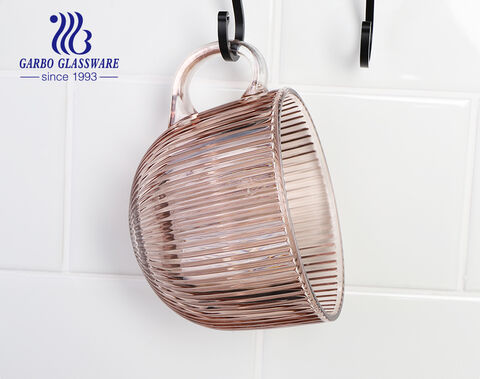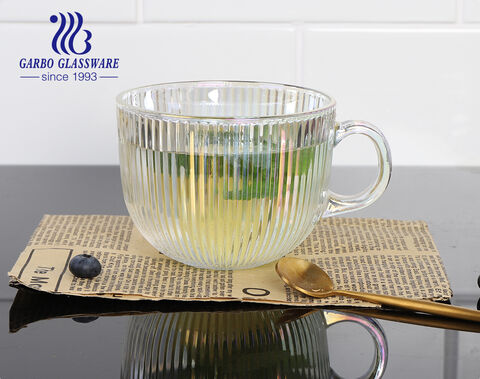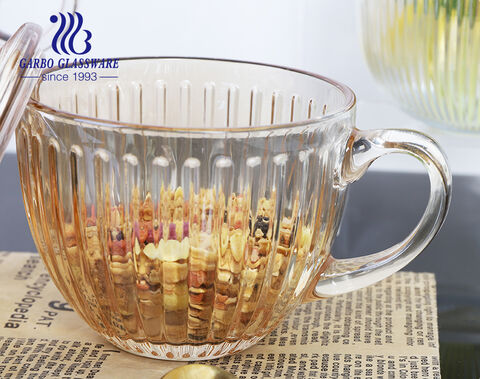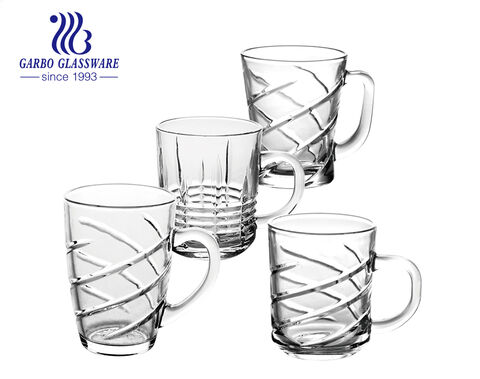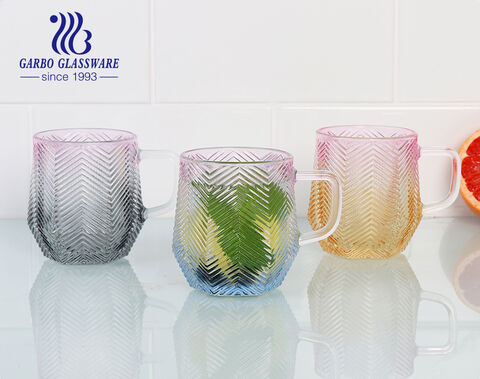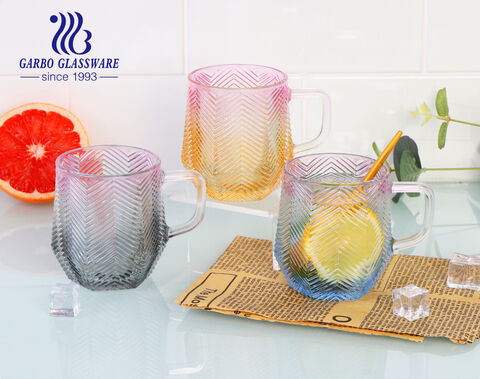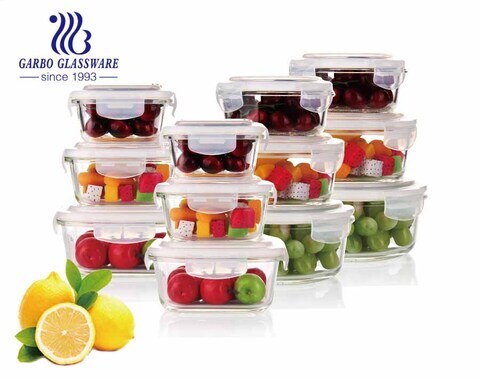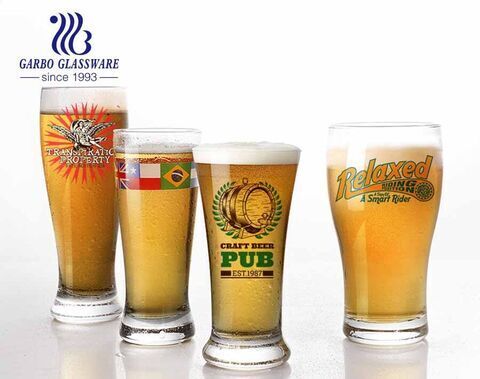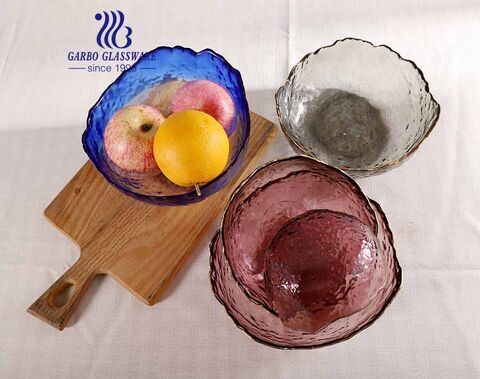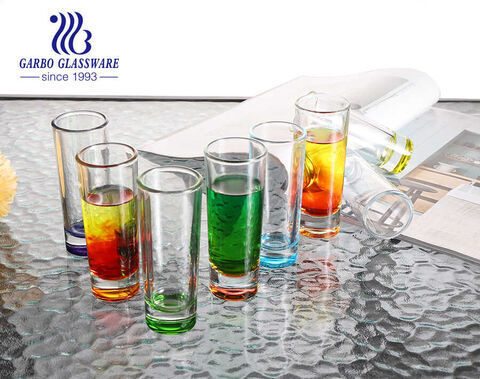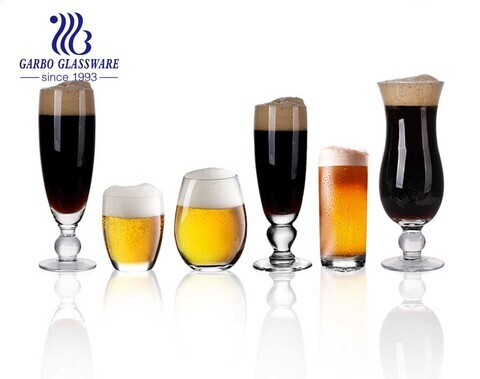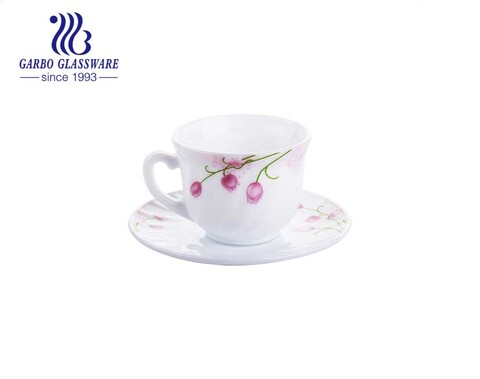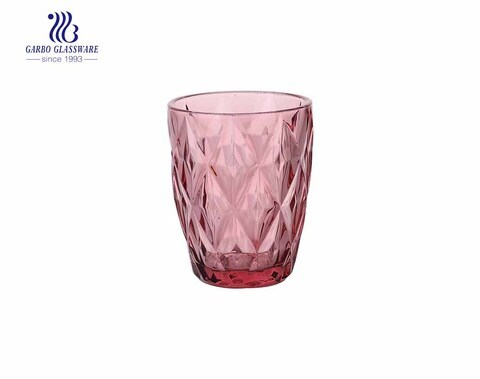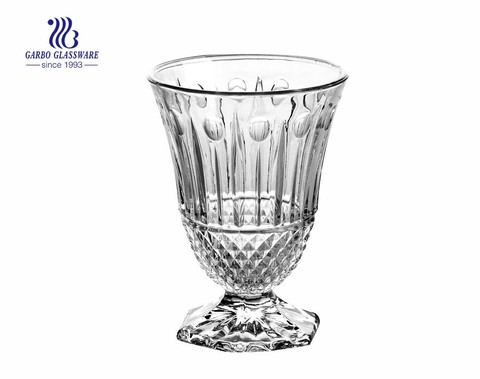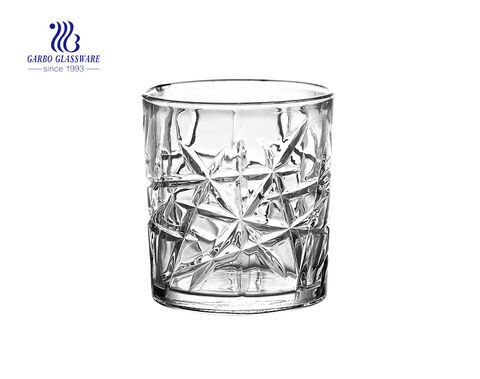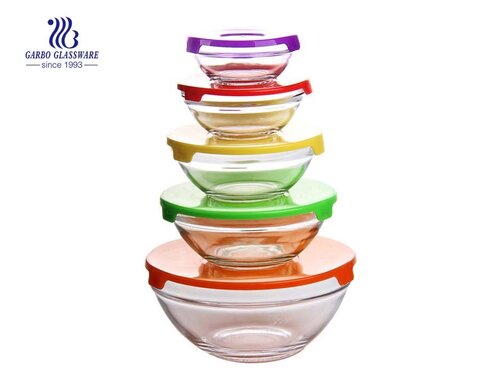17oz classical milkshake glass mug colorful Ion plating engraved glass cup
Item No: GB092517H-DDW
Material: Glass, Soda-lime Glass
Package: 48PCS/CTN, Export Safe Package
Usage: beer, as a gift mug
Size: 110*83*46mm
Volume: 510ml
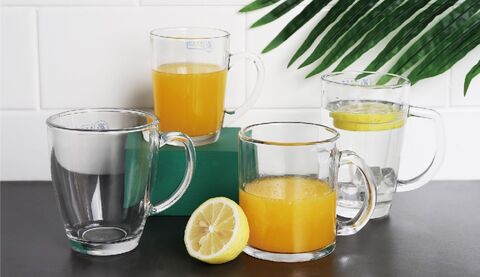
Video
Details
Glass Type: Not all types of glass are suitable for ion plating. Borosilicate glass, known for its durability and resistance to thermal shock, is often preferred for such applications.
Coating Material: Decide on the type of coating material you want to deposit onto the glass. Common materials include metals like titanium, stainless steel, or even decorative coatings like gold or chrome.
Ion Plating Process: Consult with a specialized facility or manufacturer that has the equipment and expertise to perform ion plating on glass. The process typically involves creating a vacuum chamber, heating the coating material until it vaporizes, and then allowing it to condense onto the glass surface.
Adhesion and Durability: Ensuring that the coating adheres well to the glass surface and is durable is essential. Preparing the glass surface through cleaning and surface treatments may be necessary.
Temperature Control: Be cautious about the temperatures involved in the ion plating process, as excessive heat can damage the glass. Specialized equipment may be needed to control temperature and prevent thermal stress.
Quality Control: Carefully inspect the finished product for any defects or inconsistencies in the coating. Quality control measures should be in place to ensure a satisfactory result.
Safety: Keep safety in mind, as ion plating involves working with vacuum chambers and potentially hazardous materials. Follow safety protocols and use appropriate protective equipment.
17oz classical milkshake glass mug colorful Ion plating engraved glass cup
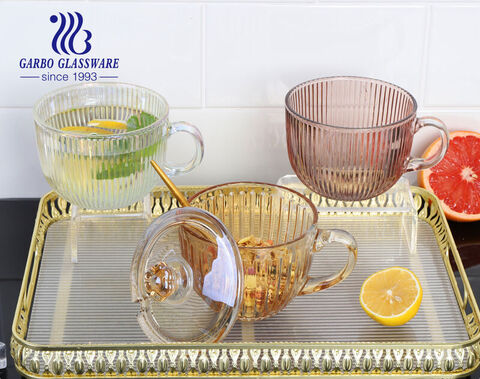
More Models
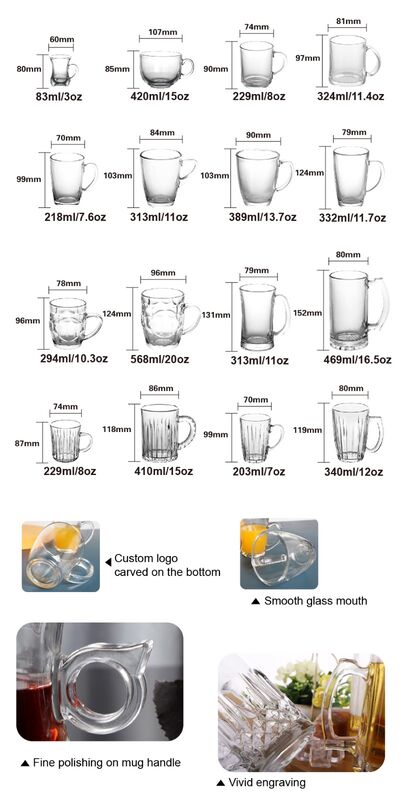
OEM&ODM
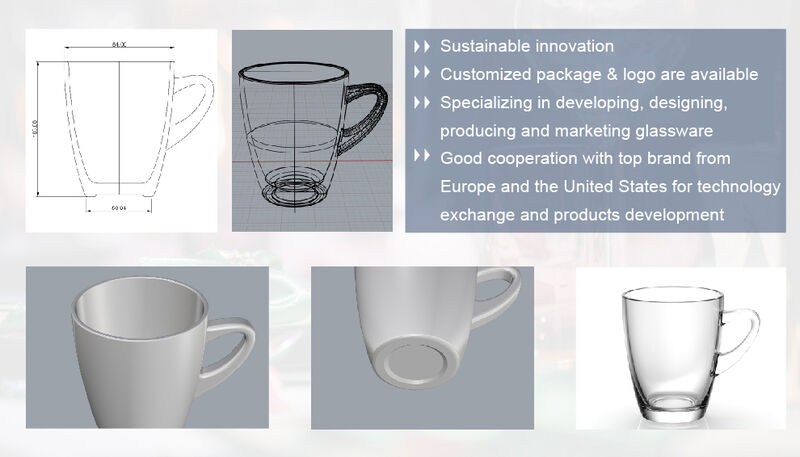
Production
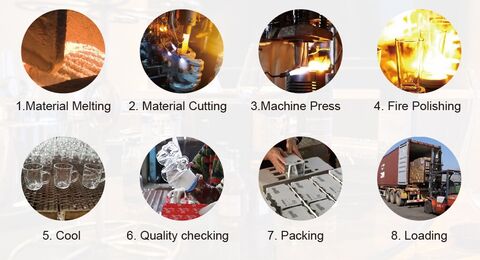
Different Package
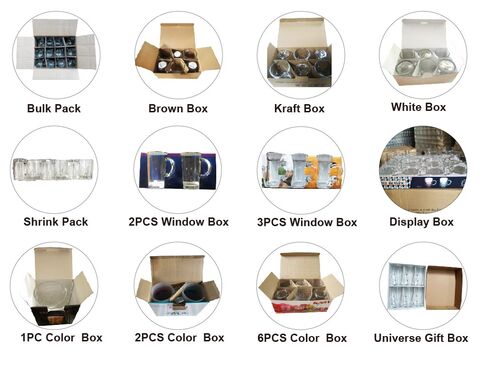
Product Categories
Contact Us
- Tel: +86 20 8479 1380
- Fax: +86 20 8479 1918
- E-mail: [email protected]


